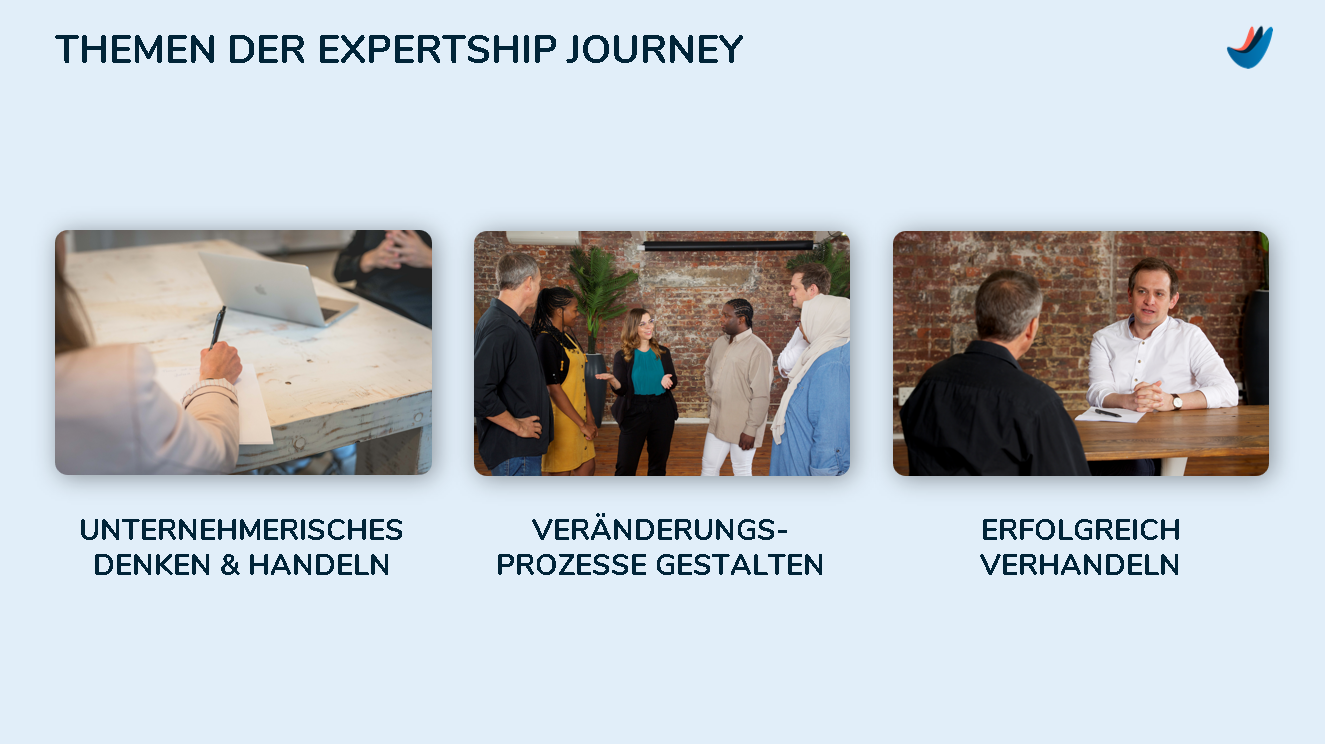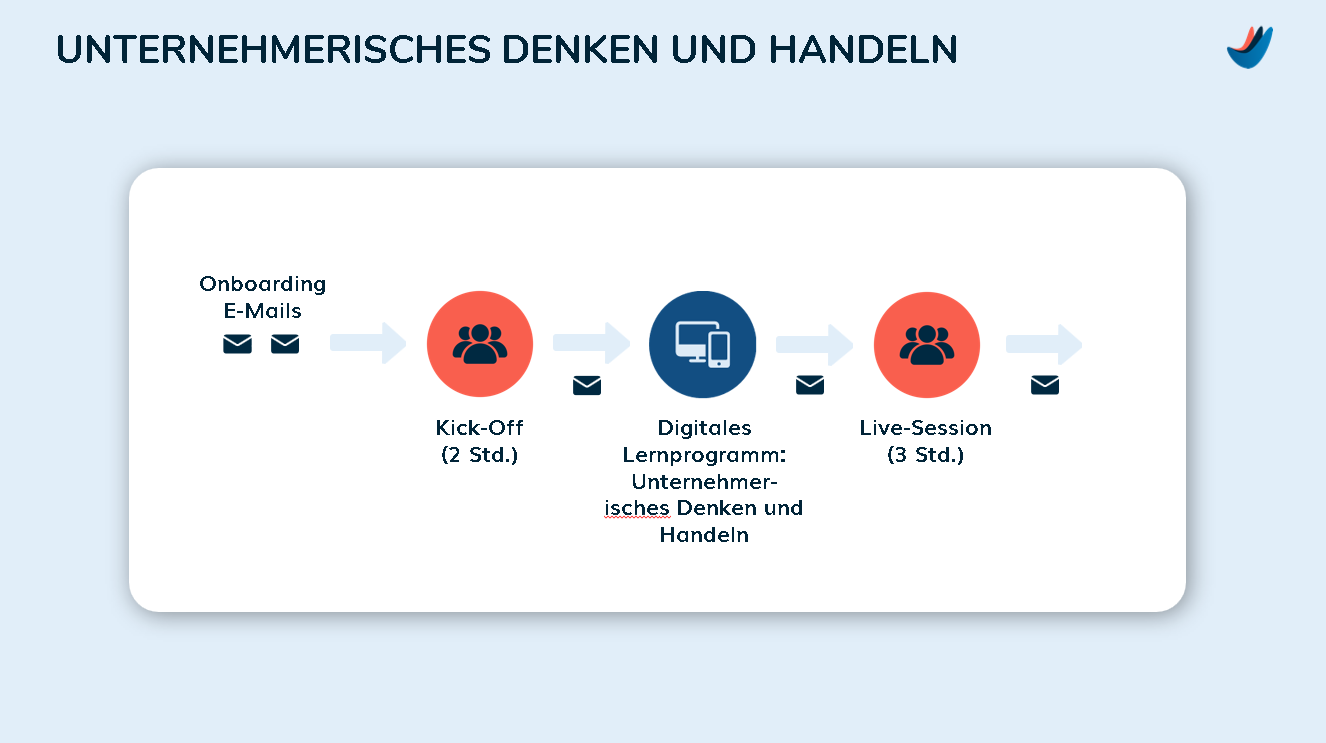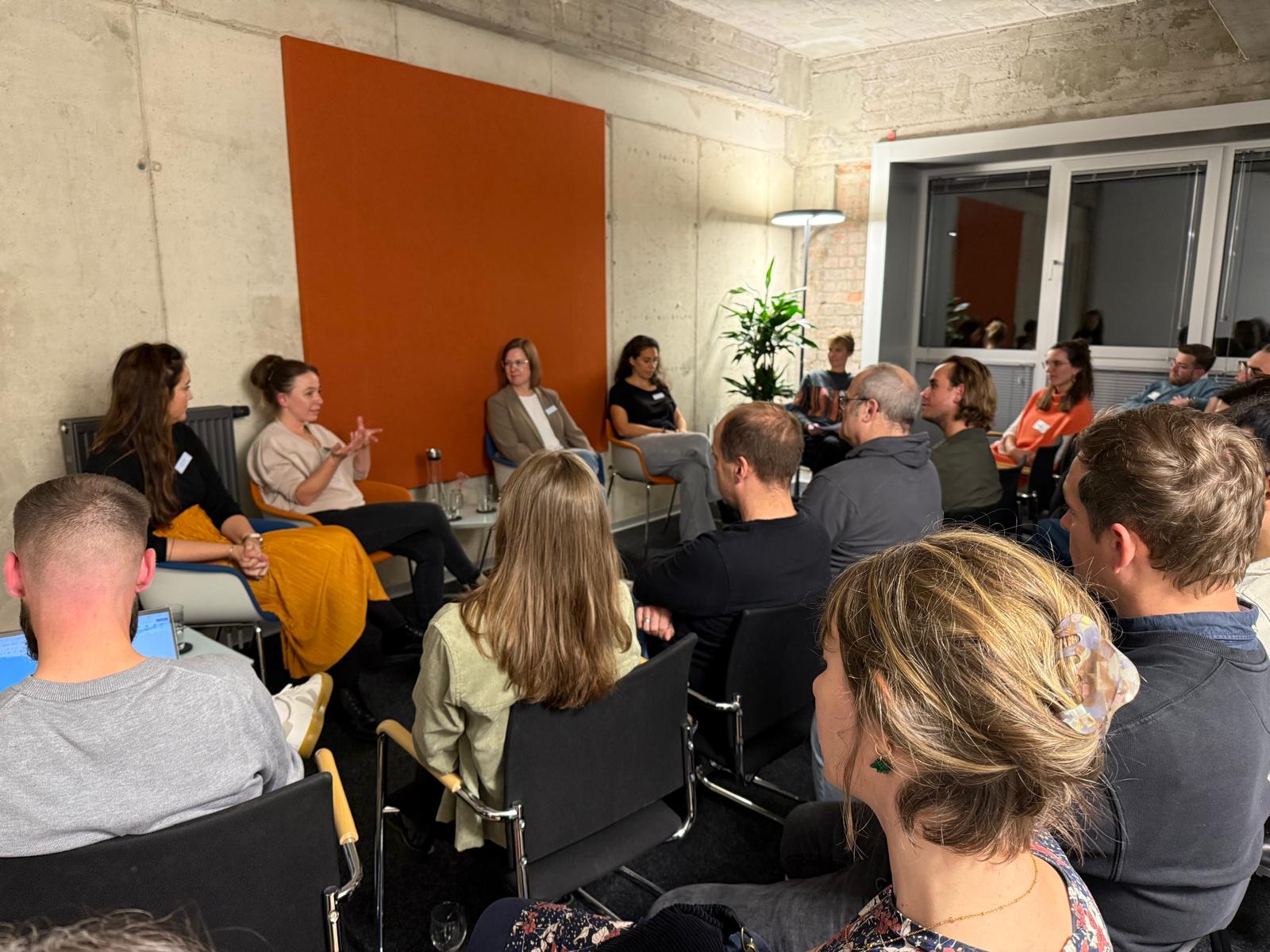More and more organizations have recognized that promoting a specialist to a leadership position is not always effective. The person with the most expertise in the team is not automatically predestined to lead the people in their team and not all high-performers aspire to a role as a people lead.
So what options do employees have to develop themselves further in their roles? To explore this topic, we invited an inspiring panel of experts to our Cologne office for a discussion: Carolin Peltzer, People Partner at METRO Markets; Fabiane Wolters, Team Lead Learning & Development at Trusted Shops; Linda Brunner, People Lead HR-IT at REWE Group; and Eva Weidner, People Business Partner at Eurowings Digital. This blog post summarizes the key insights from the discussion.

Alternative Career Paths
Let’s start with an important question: when it comes to development concepts for our employees, is focusing solely on hierarchical leadership still appropriate? Quite simply, no – at least not in the form we were used to. Careers are no longer defined exclusively by climbing up the management ladder. In fact, a survey conducted by the research institute Civey on behalf of WELT AM SONNTAG revealed that only around a quarter of employees aspire to take up a management position. 57 % of those surveyed have little or no ambition to take up a professional management position. (Welt, 2024) As a result, it is becoming increasingly important for companies to actively promote expert career paths and give them the same level of appreciation as line managers. Skilled experts are indispensable in the modern working world. They are the knowledge providers, the drivers of innovation and the strategists behind many important developments. Specialists play a decisive role in achieving corporate goals and therefore have just as much influence on the company’s success as managers. To retain employees, attractive development and career paths are needed that also appeal to people who do not wish to progress into a hierarchical leadership role.
Expertship – From knowledge management to decision-making
With an expert career path, organizations can offer their employees an equivalent alternative to a career in leadership. In order to make expert careers truly equivalent, experts must also be given a certain amount of say and creative freedom. Expert careers do not usually lead to the top management levels. When developing this career concept, organizations should ensure that information and decisions travel through all levels up to the top management. This is not just about the exchange of knowledge, but also about the strategic contribution that skilled experts can make. Knowledge transfer in companies is a key competence that is often underestimated. Specialist careers offer employees the opportunity to play a central role here.
“Specialist careers are crucial to maintaining the pool of knowledge in the company and ensuring strategic success”
Carolin Peltzer, Metro Markets.
Salary and fairness – expert career vs. management career
When it comes to making the expert career path equal and appreciative, companies must address the fair remuneration of managers and experts. Traditionally, managers in many organizations have a higher salary. Is that fair? Specialists sometimes bear great responsibility for their department – while managers often have staff and strategic responsibility, specialists have a high level of content and technical responsibility. Mistakes in their work can have just as serious consequences as wrong decisions at management level. They also have in-depth knowledge and skills that are difficult to replace and ensure that companies remain competitive. In a modern working world in which knowledge and ability count more than hierarchical status, significant salary differences to management positions are no longer appropriate. In order to attract and retain top talent, organizations need to rethink their salary structures. Variable models are also conceivable here – for example, working with assignments and projects that are reflected in the salary, or target agreements linked to these.
Promoting skills – the role of people development
In order to successfully fulfill their role, experts need in-depth specialist skills as well as the ability to innovate, an analytical mindset, and process orientation. Interdisciplinary skills are also crucial in order to achieve their goals, advance their own ideas, and convince stakeholders. These include strong communication skills, the ability to cooperate and work in a team, digital skills, and knowledge of agile working methods and project management. People development can promote these skills through targeted development formats. Trusted Shops, for example, shows what such a development path can look like in their Expertship Program. You can find out more about this in their talk at this year’s LEARNTEC.


Excerpt from the Expertship Journey at Trusted Shops
Collaborative training for specialists and managers is also something to consider. Joint training and exchange formats can create synergies and strengthen cooperation. Both groups can also learn with and from each other and benefit from joint training. Even if managers have different areas of focus, such as managing individuals and teams, there are many overarching topics – such as change management, communication strategies, or negotiation skills. In such shared training courses, it is important to take into account the specific needs of both groups and to promote them at the same time. In addition, the requirements associated with a particular role should be clearly defined.
Switching Career Paths – Is It Possible?
Once I have taken the road to leadership, there is no going back. Or is there? This is a question that many people ask themselves when planning their career, but it is indeed possible to switch from a management career to a specialist career (or vice versa). In modern development planning, deviations should not only be possible, but explicitly desired. More and more companies are offering their employees the flexibility to realign their careers during their working lives. People have phases of life in which they want to focus more on their family and phases in which they can hit the ground running professionally. A system that allows flexible changes between different roles can meet these needs better than a traditional system that only knows one direction. This flexibility also allows companies to make better use of their employees’ potential. Professionally outstanding talents are not always the best people leaders – a person’s individual strengths and motivators sometimes only become apparent in the course of their career. A change allows them to adjust their focus accordingly. Experience in both roles is also accompanied by new perspectives that enrich both specialist and management levels.
Career Paths Must Adapt to the New Work Environment
Career paths are less linear today. They can be designed flexibly and individually in order to meet the requirements of the new world of work. Lifelong learning and an agile way of working require companies and employees to be prepared to question traditional career ladders and explore new paths. This means that management careers and specialist careers should exist side by side on an equal footing and give employees the opportunity to use and develop their own strengths. Anyone pursuing a management career today could move to another level as an expert tomorrow. Expert careers must be recognized and promoted in the same way as leadership careers so that employees can make full use of their skills – and the company benefits from this. Companies must not only make room for managers, but also for specialists who make a difference with their knowledge and skills.
Would you like to be part of the next exchange format and network with other people from the HR and L&D sector? Then join our L&D community. For more information on expert career paths and suitable development programms, please contact us.



